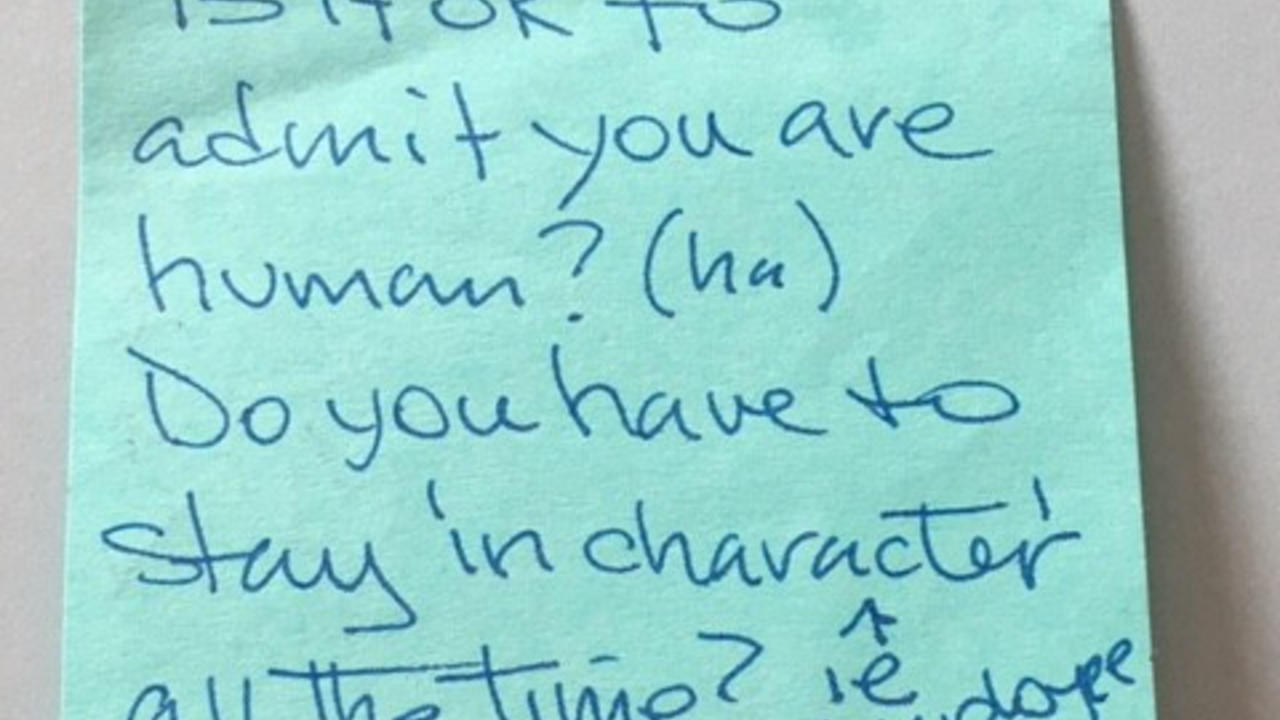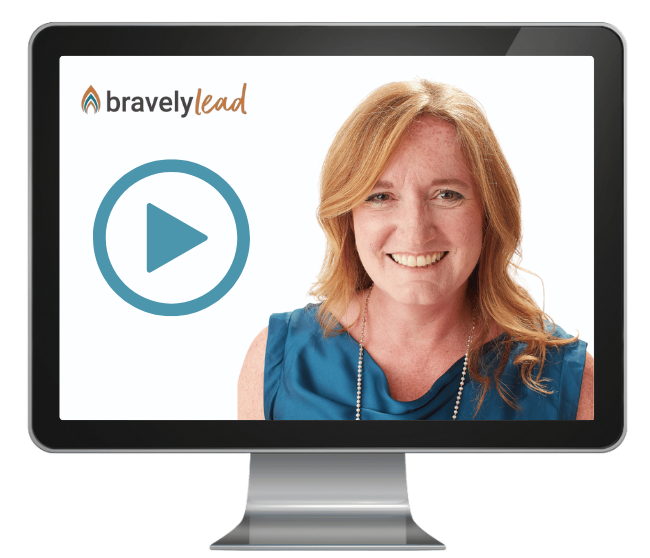Is it OK to admit you are human?

A “burning” question from a workshop participant.
Can you be yourself at work? Can you authentically interact with others in the public arena? Do you need to stay in character to have tough conversations with stakeholders?
I am asked a variation on these questions regularly in my work in brave, honest conversations. More than anything I think it speaks to how disconnected people have become from their emotions, and how we have normalized systems and processes where the “human” factor is taken out of things, prioritizing logic and “neutrality” over authenticity, feeling or connection.
My resounding answer to “Is it OK to be human?” is YES!
Perhaps the harder question to answer is how do you show up authentically in all aspects of your life?
A few years ago I participated in a year long leadership development program. At one point in the program, everyone gathered in a room to give feedback to each other focused on helping each other grow as leaders. I needed to prepare myself, knowing that I might hear difficult things, and to remind myself to listen to it all in the spirit it was being offered so I could really hear it.
Imagine the moment: 22 people gathered in a room with open hearts and a deep intention to help each other grow as leaders. Each person takes the front of the room, takes a deep breath, centers themselves and then the feedback begins. The feedback is grouped into 3 categories and sometimes it feels jarring and shocking, and other times it feels tender and soft, and it is all available for you to learn from. Here is some of the feedback I received:
I show up as a leader when:
-
I engage others
-
I lead with vulnerability
-
I challenge the rules
-
I ask for help
-
I lead from the heart
-
I don’t hold back
My unintended impact [positive or negative] as a leader happens when:
-
People pull back because I feel so strongly about something there is no room for them
-
I grow people around me because of my passion and commitment
-
I create a space of inclusivity and curiosity
-
People engage because they feel like they can tell me anything
-
I take people down a path of discomfort, safely
-
I demonstrate courage so others can find their bravery
I fail as a leader when:
-
I tell people what to do
-
I believe I am the only one who understands the right approach
-
I withdraw from a situation in frustration
-
I don’t take the opportunity to let others lead
It was incredibly challenging and beautiful to hear these things. It also changed my entire approach to leading in my work and life. It grounded me in bringing my whole self to my whole life — to showing up authentically and openly in service to others.
It’s counter-intuitive that when you are vulnerable, open-hearted, transparent, humble and brave you draw people in, they connect with you, you empower them to find their courage and share too.
It’s counter-intuitive that when the world has taught us to be “professional” rather than caring, that it is when we demonstrate that we care that we are the best leaders we can be. We create connection, trust and relationships when we show up authentically. When we show up in a role or with our armour on we create barriers and disconnection.
It’s not an easy path and it takes lots of self-awareness, and in my case, a commitment to being OK with getting it wrong and making mistakes and taking responsibility for those moments, in service to others in the conversation.
It’s like a touchstone — how do you want to show up in the world, in this moment, in this interaction? When you know the answer to that question and you show up authentically your positive impact is heightened.
It’s a choice — show up as a human being and build trust, relationships and connection, and ultimately find results and better outcomes because of them. Or choose not to be “human”, and create the results that come with that.




